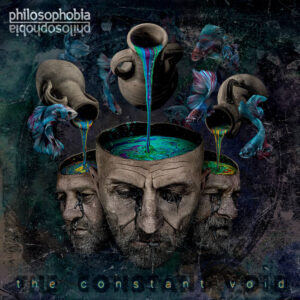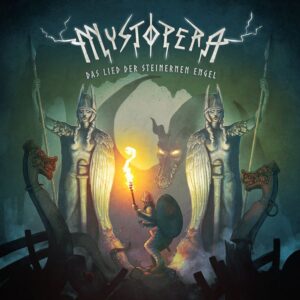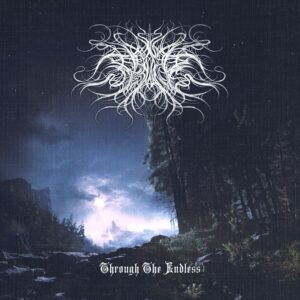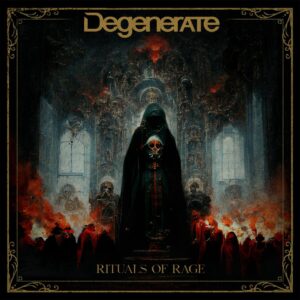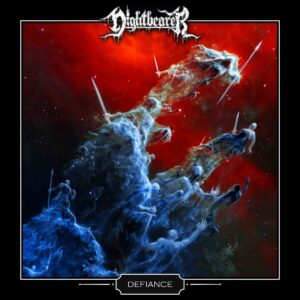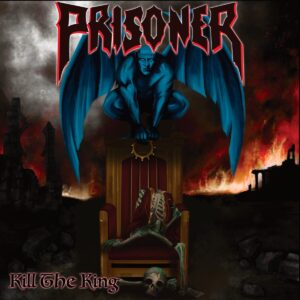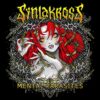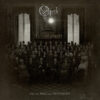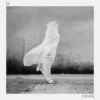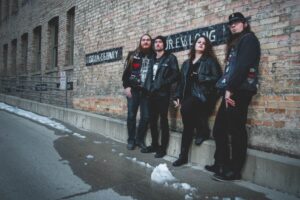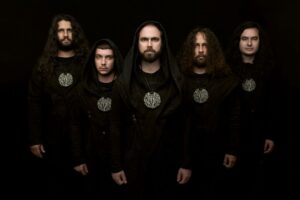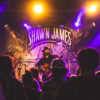Time Burner
Philm
•
February 16, 2021
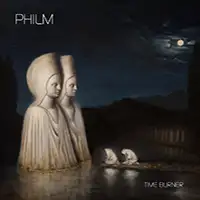
Coming 19th February 2020, PHILM are releasing their third album, and first one since 2014, "Time Burner". The follow-up to "Fire from the Evening Sun" finds the band stuck in two different modes: on one side, Proggy and Psychedelic Rock with a Post-Hardcore and Metal edge, and on the other side, jazzy, piano-led improvisations. This duality gives the record a broken structure, compromising the flow and making for an uneven yet mostly exciting experience.
Following that strange concept of mixing stuff that goes on disparate ways the album starts with a mostly Rockish tune and ends with a long, full-blown jazz instrumental. I'll admit I found myself more intrigued by the Jazz, and this trio has the chops to pull that off in a neat yet still raw way.
First let's get into the Rock/Metal side of the album. Opener "Cries Of The Century" begins with weird noises and some deeply Metal guitar arpeggio. The weird vocal style of Gerry Nestler feels a little off, but mostly works on the chorus once he starts half-screaming. The slightly dissonant melody at the backbone of the song has a jazzy undertone, particularly audible on the subtle piano work and soft, sinister outro.
"Steamroller" is quite possibly the heaviest track on the record, tied together with single "The Seventh Sun". Complex, DEATH-tingled riffing at the intro gives way to a bluesy, BLACK SABBATH feel. Nestler's vocals fit the music, yet something sounds a bit off. Once again, harsh vocals work better than clean ones as he sounds like an unhinged Anthony Kiedis at times which is a weird thing. More jazzy vibes bleed on the instrumental sections.
The aforementioned "The Seventh Sun" has some nasty Desert Rock vibes. A song that makes the most of its dynamics, gives a lot of space on the verses, maintaining the instrumentation busy enough to keep things moving but sparse enough to allow necessary breathing room to each band member. An explosive chorus, punctuated by harsh screaming, giving a much needed contrast. Its middle section allows for some interesting sonic exploration, atop noise and noodling, almost feeling improvised (maybe it even is.)
"Spanish Flowers" is a Psychedelic ditty, marked by vaguely Flamenco-tingled guitar work. Nestler's vocals feel at home at last, they fit the mood and do not sound off-key. Pancho Tomaselli lays down a gorgeous bass solo. Meanwhile, "1942" features a defiant vocal delivery atop bluesy guitar. It is a greasy, dirty song, with a dark subject matter (the death of children in the midst of the Holocaust and/or the impact of such violence in the generation that were children then). There is clear angst both on the vocal style and the instrumentation, even if it grooves along.
Rounding up the Rock/Metal side of the record is "Wonka Vision", a Funky and PRIMUS-like track, very fun and groovy. Some nice SANTANA-esque guitar soloing by Nestler adds colour, giving a little drama. Anderson Quintero grounds this shapeshifting song with his impeccable sense of timing behind the drum kit.
The purely Jazz side of the record is comprised of three instrumental tracks. "Wade Through Water" and "Evening Star" are two brief, slightly underdeveloped interludes. The former goes for a sinister, soundtrack-worthy feel, that fades out before it even gets to begin. The latter has a dark Latin Jazz vibe, filled with intricate piano playing and a steady, groovy rhythm section. The band's synergy and chemisty becomes more than obvious here. "Evening Star" certainly feels fuller and more elaborated than "Wade Through Water", and yet it leaves you waiting for more. It might lend itself nicely to live improvisation.
The eleven-minute title track has a melancholic, ambience heavy intro. This long-format composition is mostly based on extended piano soloing by Gerry Nestler. It certainly shows the band's strengths and kept me wondering why they didn't stick with the jazz trio format a bit more on the record. They could even have gone full-blown Jazz record and avoid the more Rock-oriented tracks and it probably would have made for a more consistent and enjoyable record.
Feeling like the true oddball here is "Like Gold", a track filled with dense electronic flourished and a strong psychedelic vibe. Its exquisite synths and nasty vocal effects, as well as a melodramatic spoken word section brings Jim Morrison to mind. The first couple of minutes are very DOORS-like after all. Quite possibly the most abrasive and difficult song on the record. Ironically, it's quite soft too.
Overall, "Time Burner" feels like it wants to be two albums at the same time, and although eclecticism is always a welcome quality to any band, the fact that PHILM struggles to commit to either one side of their sound or simply taking a full-blown everything goes approach leaves it in a really weird place. If I had to choose, I'd take the Jazz route as they do not only have the chops for that, but the instrumentals here and even the Jazz-tingled sections on the more Rock/Metal tracks sounds promising and I'd be interesting in hearing how far they can take it. Either way, this is a solid effort even if it is one that feels transitional.
7 / 10
Good
Songwriting
Musicianship
Memorability
Production

"Time Burner" Track-listing:
1. Cries Of The Century
2. Steamroller
3. Spanish Flowers
4. 1942
5. Wade Through Water
6. Wonka Vision
7. The Seventh Sun
8. Evening Star
9. Like Gold
10. Time Burner
Philm Lineup:
Gerry Nestler - Vocals, Guitars, Piano
Pancho Tomaselli - Bass
Anderson Quintero - Drums
More results...
